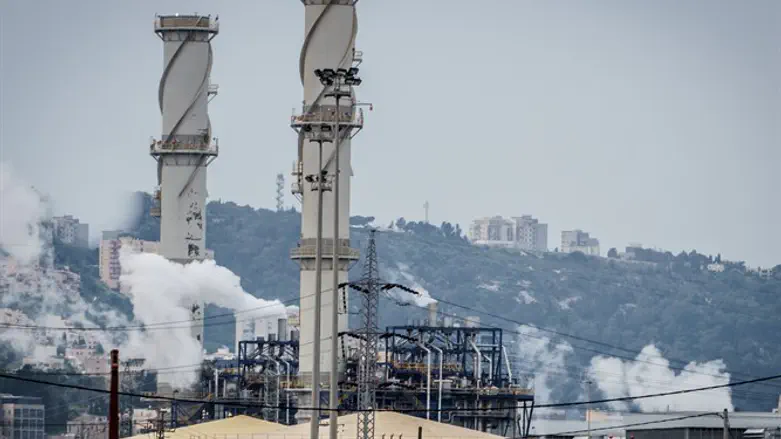
A recent report published on Monday by Israel's Health Ministry and Environment and Health Fund noted that though the overall level of air pollutants has decreased, the number of deaths in areas with high pollution levels has risen in recent years.
According to the report, Israelis spend 348,000 days each year hospitalized due to air pollution, and air pollution costs Israel's health system $1.3 billion annually. While in 2010, the number of air pollution victims was 1,744, the number of victims grew to 2,133 in 2015. However, an additional analysis by the Health Ministry showed that only 1,908 deaths were caused by air pollution in 2015.
The current report examines environmental factors affecting health, including tobacco smoke, pesticides, chemicals in food and consumer products, air quality, drinking water, non-iodizing radiation, drinking water, health trends affected by the government, irrigation using effluents, and landfill location and ammonia storage.
According to the report, Israel has not shown sufficient progress in preventing exposure to pesticides, and agricultural pesticides need to be better regulated and the laws enforced. Children's exposure to pesticides comes mainly from eating affected fruits and vegetables. While Israel's drinking water is relatively healthy, all four pollutants are rooted in pesticides. However, these pollutants were found in quantities much lower than the limit. Both magnesium and iodine need to be added to desalinated drinking water.
Though the level of certain pollutants has dropped, air quality in various areas of the country still needs improvement, and Israel should work to reduce the number of cars on the roads, the report said. It also suggested investing in sustainable public transportation: Both Tel Aviv's Hashalom train station and Bat Yam's Yoseftal train station suffer a higher-than-permitted level of air pollution, more than half the time.
In addition, exposure to harmful gases has dropped in the past decade, but exposure to methane rose.
The report also noted that Israel also needs to investigate indoor air quality and work on regulating the issue. In addition, Israel needs to enforce laws and improve regulations to prevent heavy metals from being used in playground equipment paints and children's toys.
The report noted that Israel does not yet have regulations concerning the permitted levels of non-iodizing radiation, and a large section of the public does not use earphones to reduce the amount of radiation they are exposed to while speaking on their cellular phones.
Currently, the Health Ministry is investigating the extent of children's and non-smokers' exposure to tobacco smoke.
